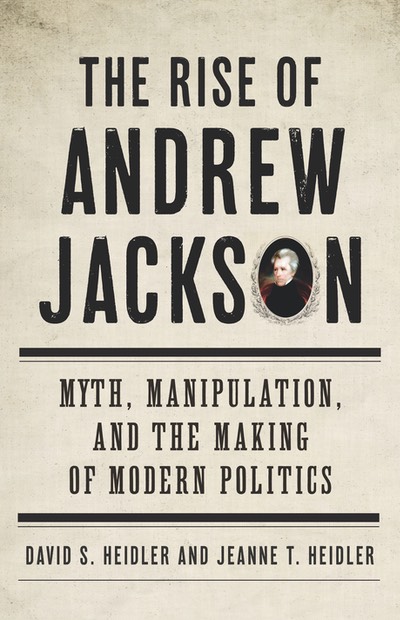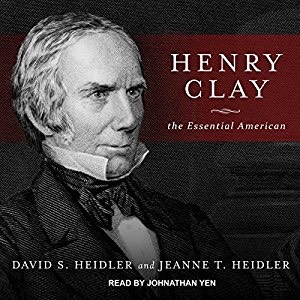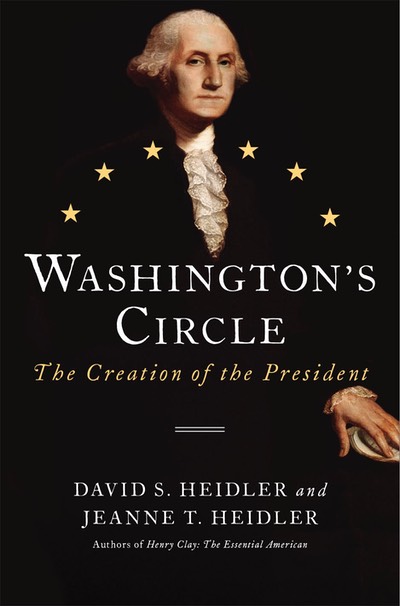Cruel payoffs and hard lessons did not make him dour or discouraged.
It’s easy to forget how very young the “Founding Fathers” were when they beat Britain and then set up a government like nothing the world had ever seen. They are almost always imperfectly remembered as old and stern. However, in 1774, Alexander Hamilton was nineteen, James Madison twenty-three, Henry Knox twenty-four, and John Jay twenty-eight. It was this week two and a third centuries ago that Jay, by then only 43, was confirmed as the first Chief Justice of the United States Supreme Court.
John Jay was a newlywed on the eve of the Revolution, his wife Sarah a pretty seventeen-year-old daughter of New York’s powerful Livingston clan. The marriage made Jay a reluctant revolutionary, but he had always been a cautious man by temperament. The prospect of starting life with Sarah by discarding everything familiar and safe seemed worse than foolish. Becoming an outlaw was downright dangerous.
Jay was never foolhardy. As a boy, he learned to look on life as a series of calculated risks. His family’s considerable wealth could not shield it from the smallpox that almost killed his younger brother and sister before striking them blind. Money could not make another brother right in his head. As John Jay grew up, he learned that life wasn’t even a matter of paying your money and taking your chances. Life was frequently a rigged game that rewarded winners with cruel payoffs and losers with hard lessons. It made him a somber youth.
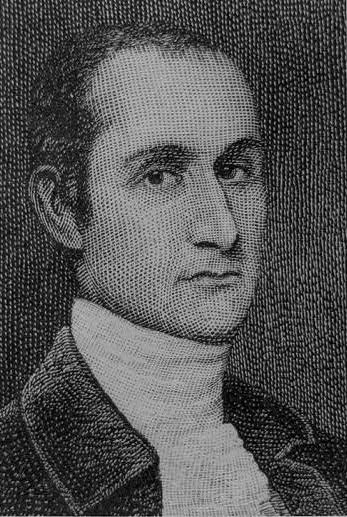
Cruel payoffs and hard lessons, however, could not make him dour or discouraged. By the time Washington met him, Jay already had made a name for himself in New York’s legal circles. With his college chum Robert R. Livingston (from a collateral branch of Jay’s wife Sarah’s family) Jay became prominent in state politics and was elected to the First Continental Congress. He was tall with an angular face and an intense stare that belied his prudent and usually soft-spoken manner. Washington was almost thirteen years older than Jay, but he always appreciated young people with talent and the good sense not to flaunt it. It was also refreshing to meet a man able to balance self-confidence and deference in his relations with almost everyone, Washington included. Thus armed, John Jay trod a path between radicals pushing for independence from Great Britain and moderates wishing for reconciliation with the king. “Always weigh both sides of a question” could have been Jay’s motto. The habit made him a good lawyer and a respected politician. People, himself included, would in time suspect that it also made him a dubious diplomat.
George Washington never questioned Jay’s character or abilities, though, and renewing their acquaintance when the president-elect arrived in New York City in 1789 was pleasant and reassuring. Washington valued Jay as a counselor precisely because of his caution, yet he also knew that Jay was a kindred spirit. Though slow to decide, once committed, he was unwavering. That had happened in the Revolution. At first, Jay recoiled from what he saw as a mad rush for independence, but British outrages — their wanton destruction of Norfolk, Virginia, was an example — changed his mind. When Jay embraced the break with Britain, he became one of its most resolute proponents. He worked to transform New York from a colony to a state, and when Jay became president of the Continental Congress in the hard years of 1778 and 1779, he and Washington became close allies. Washington was by then disgusted with endless congressional bickering. He esteemed John Jay for a quiet and stalwart champion. It was a tiny club.
Jay spent most of the 1780s in Europe, beginning with a diplomatic mission to Spain that was part of Congress’s efforts to enlist additional help in the war. Sarah was unique in accompanying him on his foreign postings and made sacrifices to do so. Transatlantic journeys during the Revolutionary War were risky for American patriots, as Henry Laurens’s capture and imprisonment in the Tower of London showed. As a result, John and Sarah left their little boy Peter Augustus in the care of his grandparents. It kept the boy safe, but his parents all but mised his childhood. Later in life, Jay recommended that his son read Plutarch because it would afford him “the experience of others without paying the price which it often cost them.” The lengthy family separation had been the price for this prudence. Everyone paid it.
Sarah Livingston Jay
Splitting up the family was cautious, but all the caution in the world could not protect them from loss. Sarah became pregnant while they were in Madrid, but their little girl born in July 1780 lived only briefly. The blow was doubly devastating because it fell so far from home. Losing the baby also seems to have amplified Jay’s penchant for showing charity to people who didn’t deserve it. One of these was Lewis Littlepage, a young Virginian from a good family but with adventurous ways and expensive tastes. He was a guest of the Jays in Madrid, but his sponging soon wore out his welcome. Jay loaned him money, though, a good deed that encouraged in Littlepage a debtor’s resentment.
Littlepage turned up again in 1783 when the Jays were in Paris where John had joined Benjamin Franklin and John Adams to negotiate the peace ending the war with Britain. John and Sarah were already on edge because of her brother, Brockholst Livingston. He was a mean-spirited rogue who came for an extended visit, ostensibly as Jay’s secretary, and he made everyone miserable from the start. Franklin sympathized — he knew how family could embarrass and friends disappoint — but the hardships on his young friend seemed excessive. Franklin was so impressed by Jay’s equanimity that he asked him to serve as one of the executors of his will. Franklin likely thought that if Jay could handle Brock Livingston, he could handle ferocious beneficiaries.
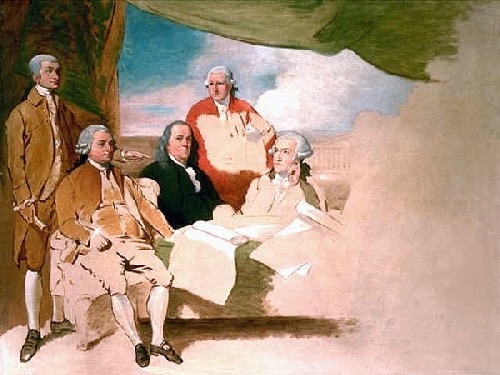
Artist Benajamin West tried to portray the peace delegations that ended the Revolutionary War, but the British commissioners refused to pose. The Americans seated from the left are John Adams, Benjamin Franklin, and William Temple Franklin, who served as his father’s secretary. Standing in the (unfinished) red coat is Henry Laurens. John Jay, gesturing, stands behind Adams.
Nobody, however, could handle Brock Livingston, and Sarah finally lost her temper. Her brother was most irritating when he played the world-weary sophisticate in front of French dinner guests, usually by lampooning Americans’ provincial manners. Sarah Jay was a proud patriot who would not tolerate criticism of her country from strangers and would certainly not abide it from her spoiled brother. Sarah’s anger could be a beautiful thing with terrifying power, like a violent thunderstorm, but Brock was unfazed and even dismissive. It reveals something about Lewis Littlepage that he liked Brock Livingston.
Jay finally broke with Littlepage over a little matter, but the Virginian’s deeper brooding was the catalyst. After the signing of the peace, Littlepage wanted to convey the treaty to the United States, a task sure to grab attention at home and enhance his reputation as an important man abroad. Jay said he had no authority to grant the commission, but Littlepage didn’t believe him. The young man became so abusive that John Adams reprimanded him as an upstart. Littlepage realized he had overstepped and offered humble apologies, but he didn’t mean them, as Jay would find out.
These clashes of personalities in Europe did not overshadow the excellent work Jay did there. The Confederation recognized this and rewarded his service by making Jay its chief foreign officer when he returned to the United States in 1785. Jay did not need the post, or any post, for that matter. He was one of the richest men in America. Landholdings in eastern New York became a real estate bonanza, allowing the growing Jay family to divide its time between a mansion on Broadway and an estate in the country.
Unfortunately, Jay was ill-suited for the task of handling the country’s foreign affairs in the best of times. As it was, he had the impossible job of advancing the interests of a bankrupt country that had disbanded its army and could not afford a navy. Working under that disadvantage, he managed to infuriate the West and the South. Jay struck a terrible bargain with Spain that traded American navigation rights on the Mississippi River for a trade agreement to help eastern commercial interests. Congress rejected the arrangement, but it made Jay look like a scheming partner of northeastern merchants as well as an unreliable advocate for national interests. The Spanish negotiator’s private boast that he had taken advantage of Jay didn’t stay a secret for long, nor did his estimation of Sarah as a shrew.
It was at this unpropitious time that Lewis Littlepage showed up in New York City and resumed his old pattern. He first used fawning flattery to seek a gift and then resorted to nasty recriminations when denied it. In this instance, Littlepage still owed Jay money, but he had a new favor to ask, which brought on the fawning phase. Littlepage wanted Jay to obtain a recommendation from Congress that he could present to the Polish king, the target of Littlepage’s latest adventure. Jay shouldn’t have, but he made the request.
Jay’s worst mistake, though, was finally losing his patience, the facet of his demeanor that Franklin had so admired. Jay filed suit against Littlepage to recover the longstanding debt, and Littlepage responded by publishing a blistering criticism that added insult to the injuries Jay had already suffered at the hands of the Spanish. The ensuing newspaper war between the two was unproductive, unseemly, and descended into farce when Brockholst Livingston took Littlepage’s part and estranged himself from his family. Alexander Hamilton was Jay’s lawyer, and Thomas Jefferson and George Washington supported him against their fellow Virginian, but nothing could alter the fact that for once Jay had been uncharacteristically impetuous. His exasperation was understandable, but the episode did him little credit.
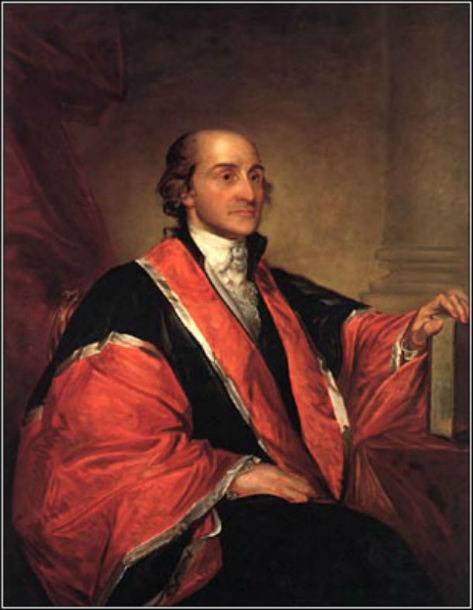
A spirit of public service still animated him, despite his missteps with foreign affairs and personal relations, and his political opinions always rendered deliberately with dignity restored his reputation. He did not attend the Constitutional Convention in Philadelphia, but he was an essential supporter of ratification in New York and a collaborator with Madison and Hamilton on The Federalist. From his experience, he knew that a stable central government was the country’s only chance to survive in a hostile world.
Washington asked Jay to man the foreign office as a transition for the incoming constitutional government, and Jay as usual agreed. The president was grateful for the man’s calm grasp of detail and the resonant honesty of someone too rich to be bought and too decent to take advantage. When office seekers asked him to influence Washington’s selections for positions, Jay always refused. That sort of sterling character made Washington want this man in the executive branch permanently. He proposed that Jay stay on at the State Department. A few years earlier, he might have agreed, but by 1789 he had other ideas about where he would be most useful.
He was willing to go on the Court, but as always, with sincere reluctance. John Adams’s daughter “Nabby” saw Jay surrounded by his family and thought him “a most pleasing man, plain in his manners, but kind, affectionate, and attentive” with “benevolence . . . engraved in every feature.” In this ideal setting, this quiet, pious man was happiest. He gave it up for the always challenging and often thankless task of setting up the country’s fundamental institutions. The country could count its blessings.
